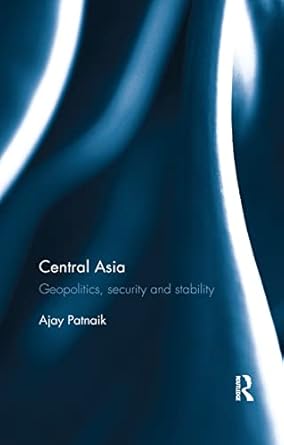

This volume, Central Asia: Geopolitics, Security and Stability by Ajay Patnaik is a book that adds a new dimension to the understanding of the geopolitics of Central Asia. The book is divided into eight chapters.
The main argument of the book is that sustainable security in the region is only possible through intra-regional co-operation. Although there is a lack of significant inter-state co-operation between the Central Asian states, the region is somehow at peace and there are no wars. This is one of the reasons why the Central Asian states enjoy greater strategic autonomy from external powers such as the United States and Russia. In addition, the actions of other regional powers such as China, Iran and Turkey as well as India’s Silk Road strategy are thoroughly examined. The author tends to challenge the views of Western scholars who believe that Russia’s escalating influence in Central Asia is driven by neo-imperialist ambitions. He argues that Central Asian leaders see Russia’s presence as beneficial to the region. The author's approach presents Russia not as a hegemon, but as a geopolitical balancing factor. He does this by highlighting Russia’s hard and soft forces in Eurasia and how they protect against external security threats and other non-military/non-traditional challenges.
Finally, the author concludes that the regional stability of Central Asia states depends on relations between states within the Central Asia and a higher degree of inter-state co-operation. Against this background, the book analyses the emergence of great powers and regional powers in the Central Asia region and the region states response to them. It represents an important contribution to the existing literature on this topic. The volume offers a well-reasoned analysis of geopolitics in Central Asia. This book is useful for policy makers, scholars and students.
Szabolcs Veres is a researcher at the Eurasia Center
Publisher: Routledge
Publication date: 216
ISBN: 978-1138215757
Pages: 256